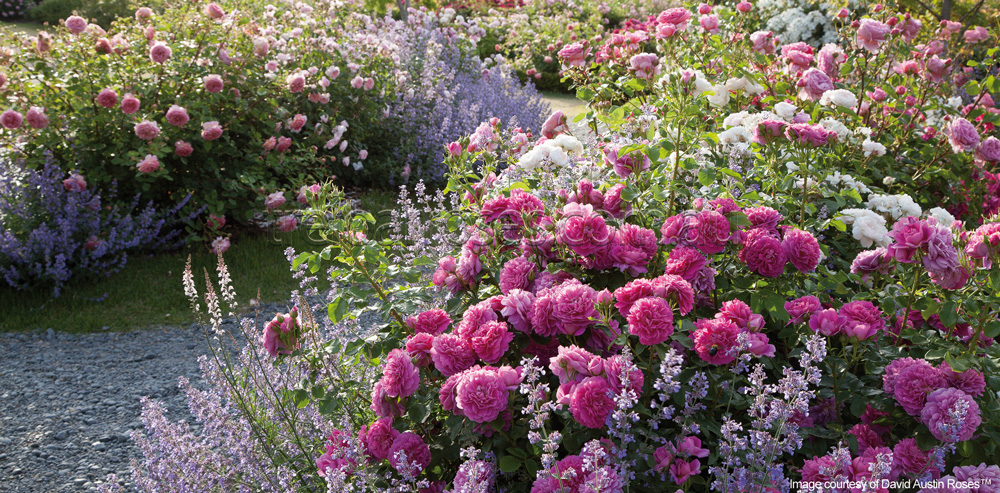Companion Planting With Roses
Companion planting is a fantastic way to enhance the natural beauty of your roses and increase the visual appeal of your garden. Not only that, companion planting can be an effective method of pest control.
What you need to consider when companion planting with roses:
- Select plants that will thrive in same conditions as roses and require the same nutrients and water. Roses need plenty of water, sunlight and nutrients. Click here for more information on growing roses.
- Ensure that your rose will still receive plenty of air circulation, especially in humid climates. Good air circulation is important to help prevent fungal disease such as black spot and powdery mildew. Where fungal diseases are a concern, select lower growing plants.
- Roses do not like competition. Avoid large growing plants as roses do not like to be overcrowded. Select smaller plants with shallow root systems.
- Do not plant companions closer then 30-40cm from the base of a rose. This not only limits competition and disturbance of the roots but it allows for easy access for fertilising and watering.
- When planting flowering companions, you will need to compensate when fertilising your roses. Roses are heavy feeders and require plenty of nutrients to flower and grow with vigour. Add enough fertiliser for both the rose and the companion plants.
- Some companion plants help to discourage certain pests and encourage beneficial insects to your garden. This is a great method of pest control for organic gardeners or those that wish to limit their use of chemicals.
Companion plants that grow well with roses:
Mini agapanthus, Lamb’s Ears, Erysimum, Woodworm, Dianthus, Chamomile cultivars, Pansies, Petunias, Violets, Daisy, Strawberries, Gerbera, Daylilies, Bearded Iris, Statice, Baby’s Breath and Delphinium. There are many more options and extensive lists that can be found online.
Companion planting for pest control:
Oregano, Sweet Basil, Garlic, Lavender, Geraniums, Marigolds, Mint, Parsley, Thyme, Catmint, Yarrow.

